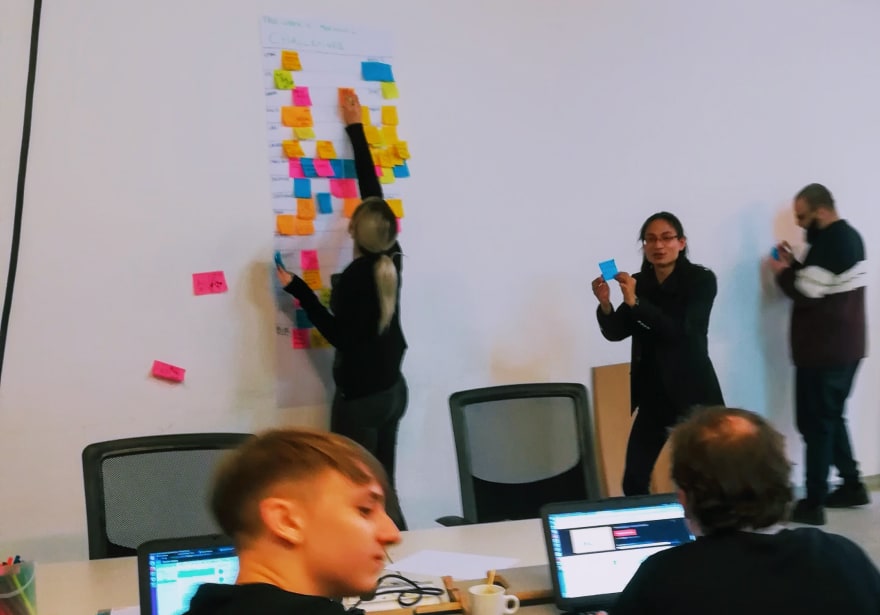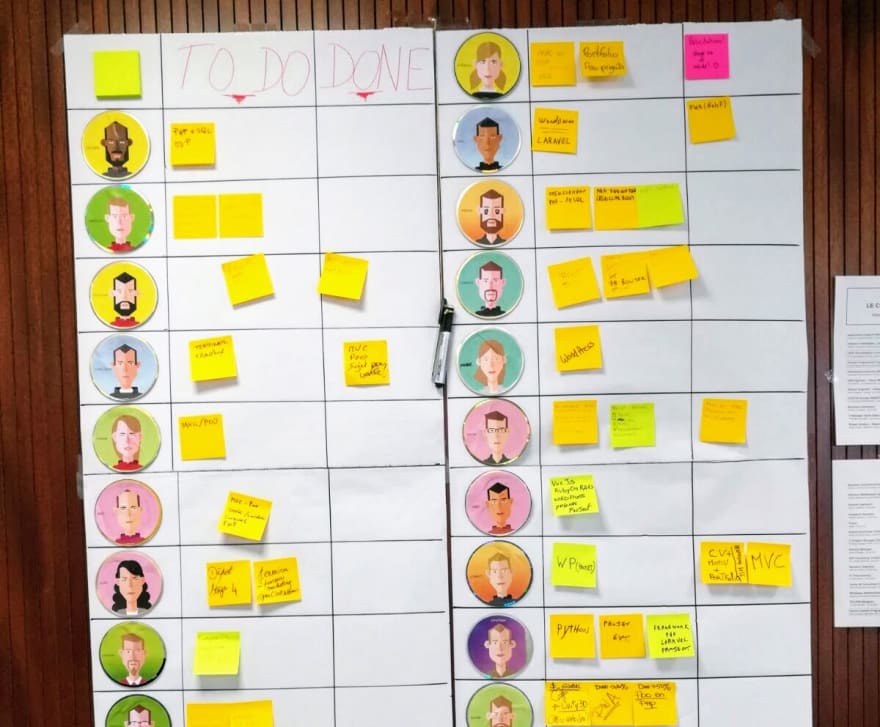It happens to the best of us.
During the BeCode boot camp, junior developers enjoy a lot of freedom and autonomy so that they can grow the skillset adapted to their personal interests : frontend, backend, fullstack, devOps ...
These are exceptional human beings. Each was selected for the sparks in its eyes when facing a new problem. For their ability to work collaboratively. For their grinta. For being passion-driven and knowledge-hungry.
As their coach, I want to know them better. So I observe them a lot. We talk, in private sessions or in group discussions.
Doing so I realized they often lose energy and time on pointless explorations. Venturing on the pretty much infinite fields of learning resources provided by the internet can be tricky. I know this because I have been there. More often than not, I would start a tutorial, and at the first difficulty, switch to another without finishing the first one. Then again, starting stuff, not finishing. As a result, it often becomes difficult for them to meet deadlines and basically, get things done. Which is frustrating and bad for morale.
When information is cheap, attention becomes expensive.
– James Gleick
What happens is, when we are trapped in the process of exploration, we lose focus on what we were actually trying to get done.
Tick. Tick. Tick.
Part of my job is to remind them that we are on a clock: we have six months to get as far as possible towards their own digital horizon. After that, they have to jump, try to swim the best they can with their new set of skills, or die trying (dramatic pun intended). Every lost second does not come back.
Too much information becomes a distraction that blurs our sense of focus. It happens to all of us. Every day.
It's understandable, but unacceptable given the objective of becoming the best developers they can be in six months.
My answer to that : the pleasure of GTD (Getting Things Done) through self discipline. I want them (and me!) to stay on focus despite the distractions and the fast pace of life at BeCode, where opportunities come by the dozen (Meetups, hackathons, conferences, talks, networking events, customer projects …).
And so I introduced a ritual that I actually discovered a few years ago whilst working with the fine team at Base Design: the "Challenges of the week" ritual.
How to conduct the Challenges of the Week ritual
This is how I roll it with my startup.
- Give the team five minutes, plenty of post-its and this instruction: "Using post-its, write down something you would like to have finished by the end of this week. One post-it per objective. Formulate it so that it's actually possible to say *done/not done."*
- Allocate an empty spot on the wall where post-it will be placed. Visible, so that it acts as a silent reminder during the week. Have plenty of empty space in front so that the team can gather up.
- Each team member comes in turn in front of the team and verbalises his objectives one by one and sticks them on the wall. I like it Popcorn style: whomever wants speaks, as long as everyone does. Do not designate, if possible.
The Challenges of the Week, in action at startup Lovelace.
- The next week at the same time, each person publicly reviews its objectives, removes the "done" post-it, and explains what happened with the remaining ones. He or she then adds her new objectives.
As facilitator, allow comments from teammates : if an objective triggers a remark, there might be an opportunity for collaboration. But let's not loose the… focus of the exercice by turning this into a debate. Rythm is everything. This should set everyone into motion and kick off the week. Speaking of rythm: the whole process lasts about 20 minutes.
We perform this ritual each Monday morning. This timing gives us a nice bonus of switching ourselves from "week-end" mode to "work week" mode.
The Challenges of the week has become a cornerstone ritual that sets the mind into motion after the week-end and align each team member to its individual objectives. It indirectly builds motivation and allows everyone knows where each other stands, thus improving the team cohesion.
Here is the pimped-up board of the Swartz startup.
This is a simple ritual. Simple and effective when done seriously. Simple enough that, perhaps, you should try it. Unless you and your team uses another ritual? Feel free to share in the comments.





Top comments (0)